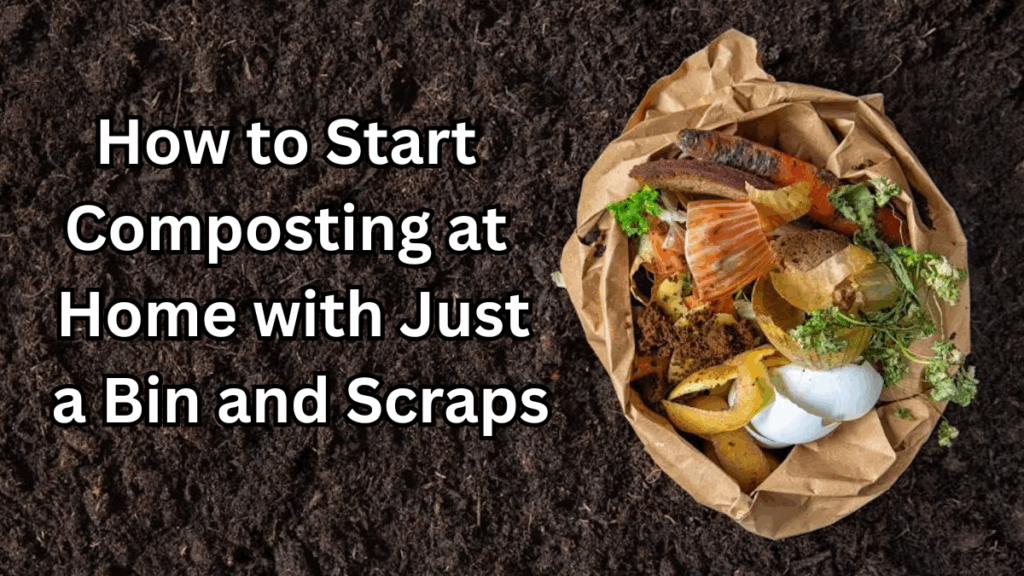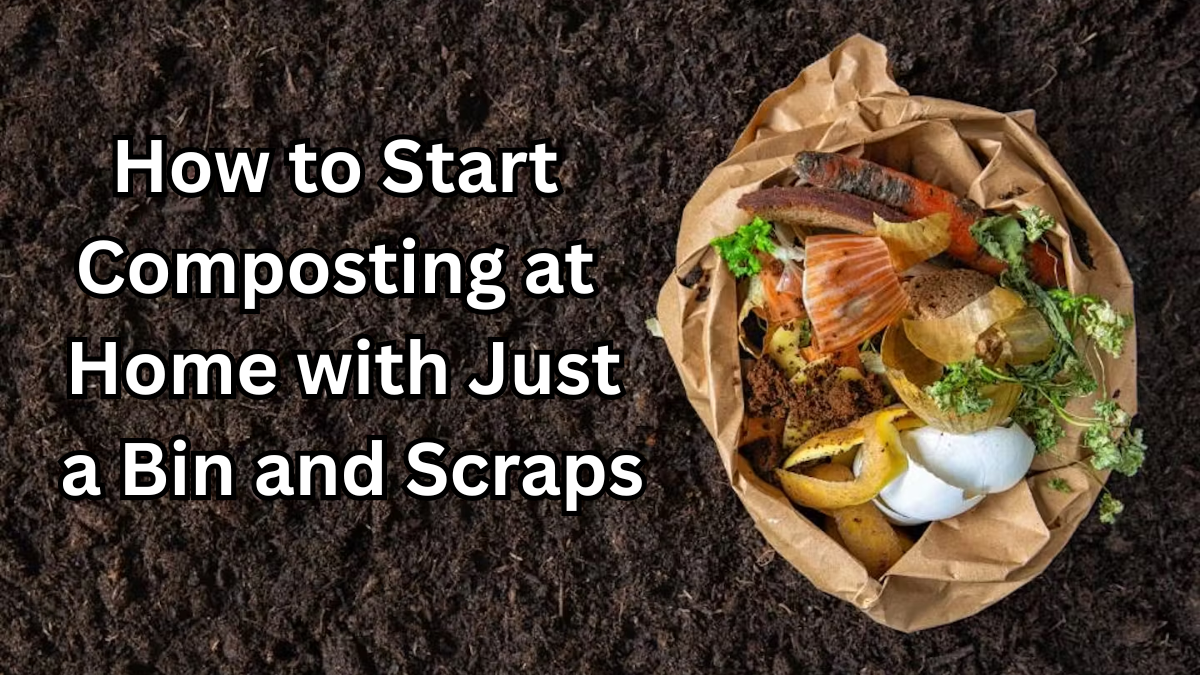Looking to turn your kitchen waste into nutrient-rich soil while helping the environment? Composting at home is a simple, sustainable way to reduce waste and boost your garden’s health. You don’t need a large backyard or fancy equipment—just a bin, your food scraps, and a bit of patience. Here’s a beginner-friendly guide to get you started.

Why Composting at Home Matters
Composting isn’t just about reducing trash. It’s a key part of eco-friendly gardening. Benefits include:
-
Reduces landfill waste and greenhouse gas emissions
-
Creates rich, natural fertilizer for your plants
-
Encourages a sustainable lifestyle
-
Saves money on store-bought compost
By adopting beginner composting practices, even small households can make a big environmental impact.
What You’ll Need for Beginner Composting
Starting is easier than you think. Gather the following items:
| Item | Purpose |
|---|---|
| Compost bin | Container for holding your organic waste |
| Food scraps | Vegetable peels, fruit skins, coffee grounds, eggshells |
| Dry materials | Paper, cardboard, leaves for balance |
| Small garden fork or trowel | Helps mix and aerate your compost |
| Water | Keeps the compost moist, like a wrung-out sponge |
Step-by-Step Guide to Composting at Home
1. Choose the Right Bin
-
Use a plastic or wooden bin with a lid and holes for airflow.
-
For indoor composting, a small bin under the sink works perfectly.
2. Layer Your Materials
-
Alternate food scraps with dry materials like shredded paper or leaves.
-
Maintain a balance: roughly 2 parts dry to 1 part wet materials.
3. Keep It Moist, Not Wet
-
Your compost should feel like a damp sponge.
-
Add water if it’s too dry, or dry materials if it’s too wet.
4. Turn Regularly
-
Mix your compost once a week to introduce oxygen, helping it break down faster.
-
Proper aeration prevents odor and speeds up decomposition.
5. Know When It’s Ready
-
Compost is ready when it’s dark, crumbly, and smells earthy.
-
This usually takes 2–3 months with regular turning.
Tips for Successful Composting at Home
-
Avoid meat, dairy, and oily foods—they attract pests.
-
Chop large scraps into smaller pieces to speed decomposition.
-
Add a layer of newspaper or leaves to reduce odor.
-
If using an outdoor bin, place it in a shaded, well-drained area.
Common Problems and How to Solve Them
| Problem | Cause | Solution |
|---|---|---|
| Smelly compost | Too much wet material | Add more dry material and turn regularly |
| Slow decomposition | Not enough air | Mix the compost to introduce oxygen |
| Fruit flies | Exposed food scraps | Cover scraps with a layer of paper or soil |
FAQs About Composting at Home
1. Can I compost in a small apartment?
Absolutely! Use a countertop or under-sink bin, and ensure good airflow. Indoor composting works well with food scraps and small amounts of dry materials.
2. How long does it take to make compost?
With proper care, beginner composting can produce usable compost in 2–3 months.
3. What can I compost besides vegetable scraps?
You can compost coffee grounds, tea bags, eggshells, shredded paper, cardboard, and yard waste. Avoid meat, dairy, and oily foods.
4. How does compost benefit my garden?
Compost enriches soil, retains moisture, and supports plant growth—perfect for eco-friendly gardening.
Click here to learn more
